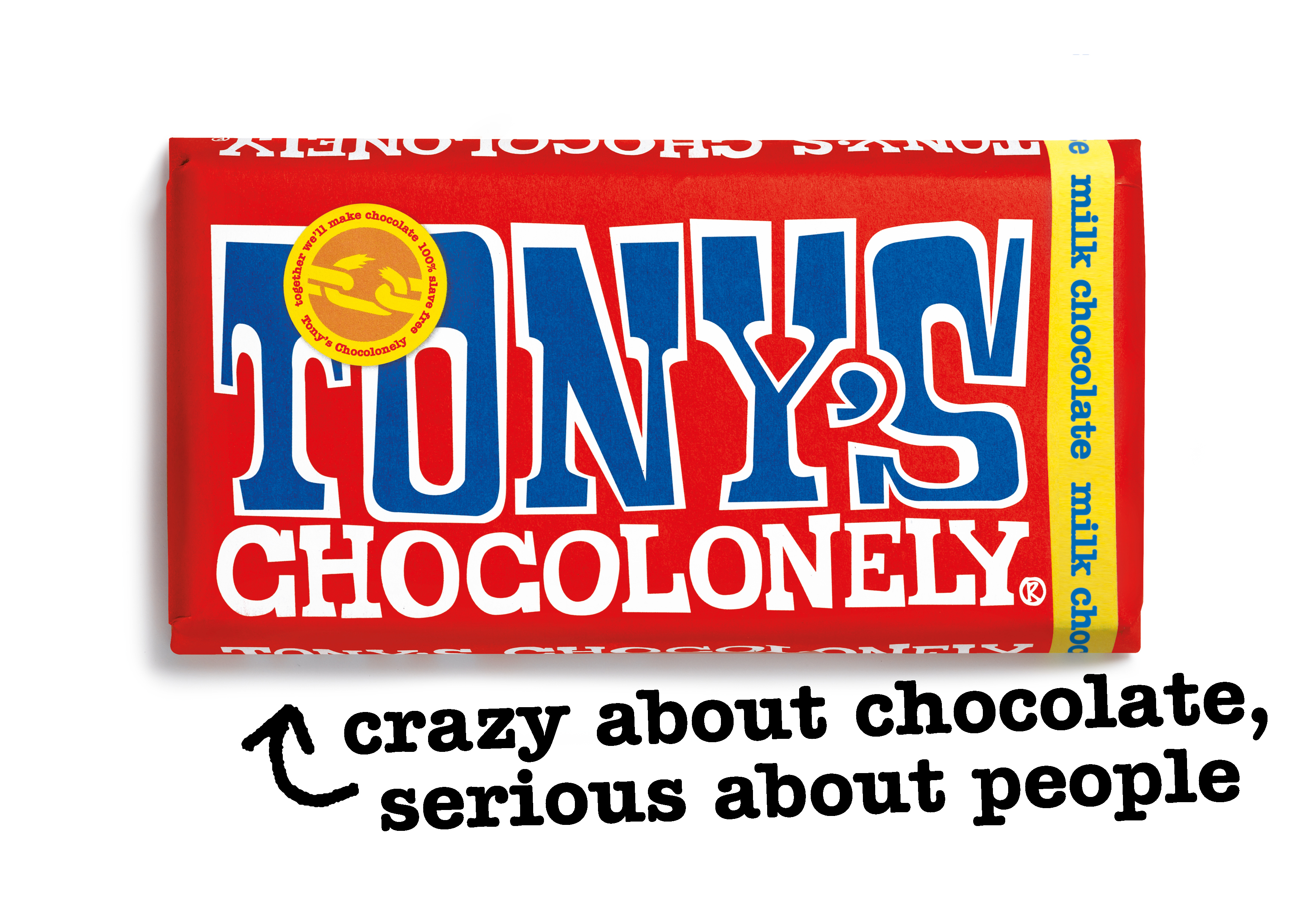

Tony's Chocolonely

North Holland, Netherlands The
December 2013
Food products
Wholesale/Retail
Austria,
Belgium,
Cote D'Ivoire (Ivory Coast),
Germany,
Ghana,
Netherlands The,
United Kingdom,
United States
Tony’s Chocolonely is an impact company that makes chocolate and fights for equality in the chocolate industry. Tony's exists to end exploitation in cocoa. Not just their own chocolate, but all chocolate worldwide. Because the system is broken and it’s up to chocolate companies to fix it. And the only way to make this happen is by working together. Tony's raises awareness around child labour and forced labour in cocoa, because for change to happen, everyone has to be aware of current problems, possible solutions and the role we each play. Tony's leads by example by being 100% traceable from bean-to-bar, because knowing who produces the beans where and under which circumstances is the only way to take full responsibility. Tony's also pays a higher cocoa price that enables cocoa farmers to earn a living. By investing in long-term partnerships and working directly with cocoa cooperatives, as well as working on quality and productivity together with the farmers, Tony's aims to make cocoa farming structurally more sustainable. Tony's Chocolonely shows that it is possible to make chocolate differently and inspires other to do the same.
Overall B Impact Score
Governance 19.7
Governance evaluates a company's overall mission, engagement around its social/environmental impact, ethics, and transparency. This section also evaluates the ability of a company to protect their mission and formally consider stakeholders in decision making through their corporate structure (e.g. benefit corporation) or corporate governing documents.
What is this? A company with an Impact Business Model is intentionally designed to create a specific positive outcome for one of its stakeholders - such as workers, community, environment, or customers.
Workers 28.0
Workers evaluates a company’s contributions to its employees’ financial security, health & safety, wellness, career development, and engagement & satisfaction. In addition, this section recognizes business models designed to benefit workers, such as companies that are at least 40% owned by non-executive employees and those that have workforce development programs to support individuals with barriers to employment.
Community 43.7
Community evaluates a company’s engagement with and impact on the communities in which it operates, hires from, and sources from. Topics include diversity, equity & inclusion, economic impact, civic engagement, charitable giving, and supply chain management. In addition, this section recognizes business models that are designed to address specific community-oriented problems, such as poverty alleviation through fair trade sourcing or distribution via microenterprises, producer cooperative models, locally focused economic development, and formal charitable giving commitments.
What is this? A company with an Impact Business Model is intentionally designed to create a specific positive outcome for one of its stakeholders - such as workers, community, environment, or customers.
Environment 29.0
Environment evaluates a company’s overall environmental management practices as well as its impact on the air, climate, water, land, and biodiversity. This includes the direct impact of a company’s operations and, when applicable its supply chain and distribution channels. This section also recognizes companies with environmentally innovative production processes and those that sell products or services that have a positive environmental impact. Some examples might include products and services that create renewable energy, reduce consumption or waste, conserve land or wildlife, provide less toxic alternatives to the market, or educate people about environmental problems.
What is this? A company with an Impact Business Model is intentionally designed to create a specific positive outcome for one of its stakeholders - such as workers, community, environment, or customers.
Customers 4.3
Customers evaluates a company’s stewardship of its customers through the quality of its products and services, ethical marketing, data privacy and security, and feedback channels. In addition, this section recognizes products or services that are designed to address a particular social problem for or through its customers, such as health or educational products, arts & media products, serving underserved customers/clients, and services that improve the social impact of other businesses or organizations.